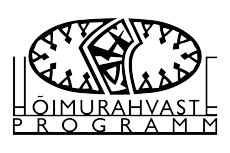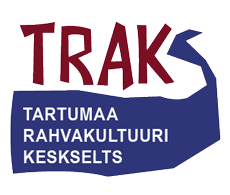Kui miä kazvõlin, kanainõ
(Dance Song)
Oudekki Figurova (archive recording)
Mari Kalkun
In Votian
Kui miä kazvõlin, kanainõ,
nõizin neito noorukkainõ
viie vello veerüvezä,
kuuvõ vello kukkazõna,
seittseme minńa natona,
isä kuttsu kullassõni,
emä ehto lahzõssõni,
vellot tširkutit sizossi,
vello naizuvõd naossi.
Isä pillinä piteli,
vello kantõ kantõlõna.
Panti pilli piina pääle,
kantõlõ kammari ovele.
In English
When I was growing up, dear hen,
Rising tall, dear young maiden,
Side by side with five brothers,
A blossom of six brothers,
Sister-in-law to seven daughter-in-laws.
Dear father called me his precious,
Dear mother her child,
Brothers flattered me, called me sister,
Brothers’ wives their sister-in-law,
Father cared for me like [he would for] a musical instrument,
Brother held me like a psaltery.
The instrument was hung on the doorjamb,
The psaltery on the chamber door.
In Votian written language
Kui miä kazvõlin, kanainõ,
nõizin neito noorukkainõ
viijje vello veerüvezä,
kuvvõ vello kukkazõna,
seittseme minńa natona,
isä kuttsu kullassõni,
emä ehto lahzõssõni,
vellod tširkutid sizossi,
vello naizuvõd naossi.
Isä pillinä piteli,
vello kantõ kantõlõna.
Panti pilli piina pääle,
kantõlõ kammari ovelle.
Oudekki Figurova performed a Votian version of a song which describes a maiden’s nice life in her paternal home (the Ingrian version in this publication begins as follows: Tehkää üksi ümbärikko). In the song here, the daughter compares to how she was taken care of in her parental home with taking care of a music instrument.
Oudekki explained that the song was sung at weddings, moving in a circle. The dancers placed one hand on the shoulder of the person in fron of them, the other hand was swayed from front to the side and from the side back to the front, as is customary for Russian circle dances. Dancers moved by stomping feet on the ground.
T M Oudekki Figurova, Rajo (Ariste 1986: 35, Paul Ariste, Aino Valmet, Ingrid Rüütel 1966, RKM, Mgn II 1235 h, 1236 e).
A Oudekki Figurova (Paul Ariste, Aino Valmet, Ingrid Rüütel 1966, RKM, Mgn II 1235 h).





